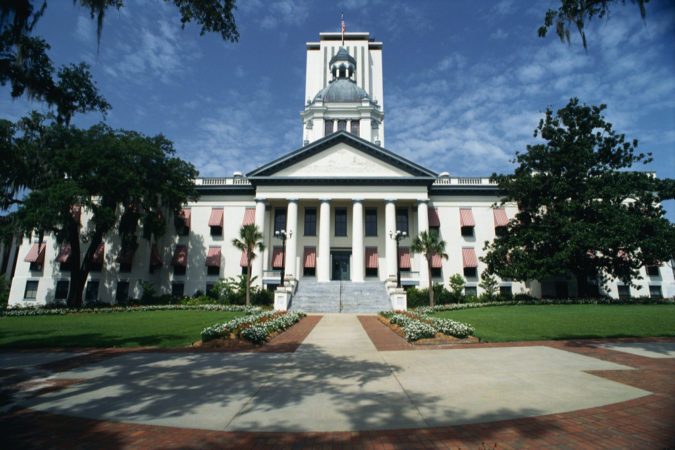
 By Ryan Dailey, The News Service of Florida.
By Ryan Dailey, The News Service of Florida.
TALLAHASSEE — An effort to restrict what flags can be flown at schools and other public buildings flailed in the Florida Senate last week, after a key committee adjourned before members voted on the proposal.
The measure (SB 1120) would prohibit government agencies, public schools, colleges and universities from flying any flag that “represents a political viewpoint” including any “politically partisan, racial, sexual orientation and gender, or political ideology viewpoint.”
Debate surrounding the bill has focused heavily on the potential that it could bar LGBTQ pride flags at public buildings. Sen. Tina Polsky, D-Boca Raton, argued during Tuesday’s meeting of the Governmental Oversight Committee that prohibitions listed in the bill involve groups of people, not inherently political viewpoints.
“Race, gender, sexual orientation, religion are not political unto themselves. So, we should be as inclusive as possible. Not exclusive,” Polsky said.
Polsky’s comments, and those of numerous members of the public who opposed the bill, came hours after Gov. Ron DeSantis backed the measure.
DeSantis said he had not seen the bill but signaled that he would support it.
“If you take a position that, we’re going to fly the American flag and the state of Florida flag, and that’s it, it’s not targeting anybody. It’s basically saying that we’re not going to get into this business of doing this. So I think that’s totally fine,” the governor told reporters during an appearance in Orange City.
“I don’t think you could say, you can fly any flag you want except one or two. Then I think that would be maybe content-based discrimination,” DeSantis added.
A Senate staff analysis of the measure questioned prohibiting flags that represent a “political viewpoint.” The analysis appeared to point to potential confusion about what would actually be prohibited.
“While the bill provides examples of what represents a ‘political viewpoint’ for purposes of the bill, it does not define the term. Similarly, while the bill clearly regulates governmental speech, which is not limited by First Amendment regulations, it is unclear where government speech (or that undertaken by a ‘governmental entity’) ends and private speech begins for purposes of this regulation,” the analysis said.
The bill is in jeopardy in the Senate midway through the legislative session after it stalled in the Governmental Oversight Committee for the second time.
“The committee is not scheduled to meet again,” Katie Betta, a spokeswoman for Senate President Kathleen Passidomo, R-Naples, said in an email. “If a bill remains in a committee that is no longer meeting, it is procedurally very difficult for the issue to advance.”



